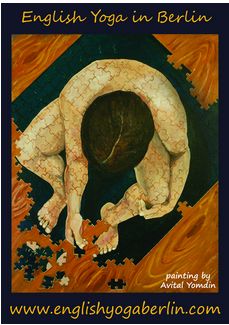Why care about the climate crisis?
There are many reasons to care about the climate crisis and show your support through joining the global climate strike on September 20th. Among them, of course, are caring for our planet, leaving a livable world for the future generations and understanding the pain that the world is already in and will continue to increase astronomically in the next 80 years.
These reasons are enough in and of themselves.
A yogic point of view to joining the climate strike.

Photo by Jacob Owens on Unsplash
Although the reasons mentioned above should be enough, nonetheless, I will add a yogic point of view. Our current Western lifestyles violate nearly all of the yamas and niyamas (yogic ethics) which are the two first pillars of yoga. There is a reason why the Yamas and Niyamas come before the asanas (yoga poses), and pranayama (breathing techniques). One can do as many sun salutations as one wants but that is not enough to change the world. Ethical living both at the private level and at the systemic level will.
AHIMSA (non violence) is the first Yama that requires of every yogi to “first do no harm”. Our current ways of life harm our planet in multiple ways.
SATYA (truthfulness) requires of us to be truthful to what is really here. The climate. crisis. is. here. and our window to do something about it is closing.
ASTEYA (non stealing, non hoarding) requires of us to stifle greed. It requires of the yogi to ask themselves again and again: “do I really need this?” We simply can not afford to live this consumerist way of life anymore.
In a capitalist world, where we are led to believe that “the grass is always greener on the other side”, APARIGRAHA (non comapring) and SANTOSHA (contentment) would be the end of capitalism. The idea of “I am enough” and I do not need to acquire more or become more like my neighbor, is both incredibly old and radical all at once.
SAUCHA (cleanliness inside and out) requires of our bodies and mind to be clean. But how is that possible when our water is polluted, our meat consumption is one of the main causes of the climate crisis itself and our forests are burning? We need to use TAPAS (willpower, discipline) to focus our energies to bringing change.
SVADHYAYA is about active self-reflection, traditionally in understanding the holy scriptures of yoga. These scriptures guide us to the understanding that “All is One”. We can not possibly understand this at a deep level while poisoning the Earth simultaneously.
I am already doing all I can, so why join with others in a strike?
It is easy, however, to make all of this into a private individual problem when the truth is that changes in individual consumption practices and attitudes are simply not enough to tackle the problem. We need to change the system at a much deeper level. And that is why we invite every single one of you to join us at the global climate strike on September 20th. We all need to be there. Together.
Will striking really help anything?
And yes, there will be some of us who will say, “All this action comes too late, this can not be stopped, so why act?”. Here I will quote Tara Brach , in what I consider to be a version of the last niyama ISHVARA PRANIDAHNA (surrender):
“We want to feel that it is possible to save our Earth in order to make a step. Otherwise it is very easy to feel like resigning. But the truth is, we do not know (if saving the Earth is possible). We just do not know. I like the way Wendell Berry puts it. He says: “We don’t have a right to ask if we are going to succeed or not. The only question we have a right to ask is what is the right thing to do? What does this Earth require of us if we want to continue to live on it?” Thomas Merton puts it this way: “Do not depend on the hope of results. You may have to face the facts that your work may be apparently worthless and even achieve no results at all, if not perhaps results opposite to what you expect. As you get used to this idea, you start more and more to concentrate not on the results, but on the VALUE, the RIGHTNESS, the TRUTH of the work itself.
Did you know that your website can also join the climate strike? Click here to find out how.
“We, at English Yoga Berlin, offer Hatha Yoga classes with Pinelopi and Vinyasa yoga with Juli. Our yoga Kreuzberg Berlin classes are open for and welcoming to beginners. We also offer pregnancy yoga and private yoga classes, including for people struggling with chronic pain. We will of course be at the climate strike and wish to see you there too.”








